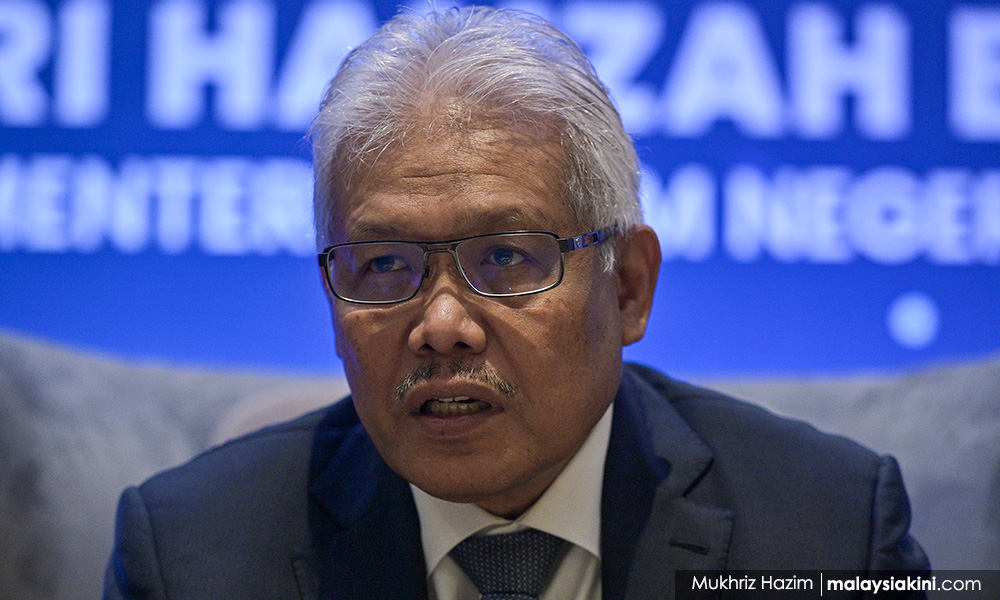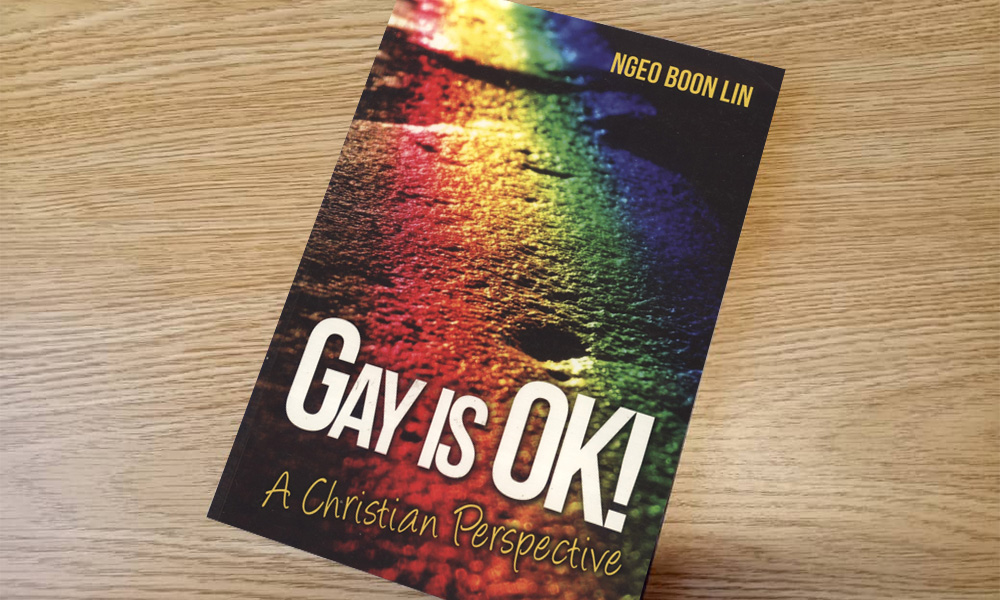The book ‘Gay is Okay! A Christian Perspective’ could jeopardise public order in Malaysia despite no untoward incidents since its publication seven years ago, contended Home Minister Hamzah Zainudin.
Through an affidavit filed against a legal challenge targeting the book ban, Hamzah claimed that the prohibitory order against the book was valid and in line with the Printing Presses and Publications Act 1984 (AMCP), thus there were no elements of irrationality and disproportionality in the ban.
The minister and the Malaysian government are the two respondents in the judicial review filed by publisher Gerakbudaya Enterprise and the book’s author, Ngeo Boon Lin.
The judicial review applicants contended that the ban was irrational and disproportionate, as no untoward incidents were triggered following the book’s publication seven years ago.
On Dec 18 last year, Bernama reported that the Home Ministry gazetted a prohibition order effective Nov 27 for two publications, among them, being the book ‘Gay is Okay! A Christian Perspective’ under Section 7(1) of AMCP.
The ministry’s chief secretary Wan Ahmad Dahlan Abdul Aziz reportedly said the publication had been banned for content that might be detrimental to public order, morals and public interest.

In the affidavit filed on May 27 this year and seen by Malaysiakini, Hamzah contended that despite no untoward incidents since the book’s publication seven years ago, it still amounted to the promotion of homosexuality, which could still jeopardise public order and public interest in Malaysia.
“The book, which promotes homosexual practice or culture in Malaysia, clearly goes against religious and cultural sensitivity in this country and has the potential to jeopardise public order and public interest if the book is distributed widely and spread among society.
“It has potential to bring objections to the point of major gatherings or demonstrations that can incite chaos and violence to the point of triggering fights as well as bloodshed among the people of multiple ethnicities and faiths in Malaysia.
“This is not a situation that could jeopardise public order and public interest that the government cannot take lightly, as it is the duty and responsibility of the government to safeguard peace in Malaysia and prevent untoward incidents from happening in Malaysia,” Hamzah contended.
The minister also claimed that the AMCP does not provide the applicants with the right to be heard before the prohibitory order is issued under Section 7(1) of the Act.
Valid expectation
Hamzah contended that the Act only provides the right to be heard in regard to the cancellation of publication permit under Section 13B, and not in regard to the issuance of the prohibitory order.
“The fact that the book has been in publication for over seven years does not bring about valid expectation among the applicants to be given the right to be heard before the prohibitory order is issued,” Hamzah contended.

However, in an affidavit in response filed on behalf of the publisher on Aug 2, Gerakbudaya founder Chong Ton Sin contended that Hamzah’s findings were baseless and confusing due to taking out of context interpretation of select excerpts of the book.
“The first respondent (Hamzah) had intentionally merely referred to certain excerpts and picked select paragraphs from different chapters of the book to support his finding, without taking into account the context in which they were made.
“The first respondent’s finding was not the true meaning of the said excerpts. The paragraphs that give context to the select excerpts were left out,” Chong claimed.
Few excerpts
He contended that as a result, the ban order went against Section 7(1) in light of the fact that only a few excerpts from the book were disputed by the first respondent, while the prohibition was against the entire book.
“The first respondent had failed to examine the book before issuing the prohibitory order. If the first respondent had truly examined the book, the prohibitory order would only be limited to the disputed paragraphs and not the whole book.
“Therefore, the first respondent had failed to take into account relevant considerations before imposing the ban,” Chong contended.
When contacted by Malaysiakini this afternoon, the applicants’ counsel Michael Cheah confirmed that the High Court had set Jan 26 next year to hear the merits of the judicial review.
Previously, the court granted leave to the applicants, following no objections raised by the Attorney-General’s Chambers in the matter.
Therefore, the court on Jan 26 next year would hear submissions from parties on whether to allow or dismiss the judicial review against the book ban. - Mkini

No comments:
Post a Comment
Note: Only a member of this blog may post a comment.